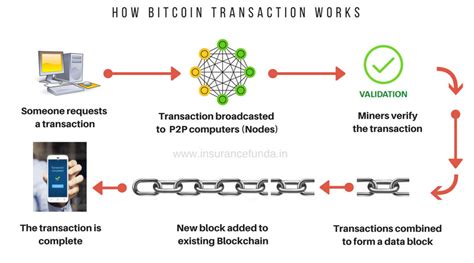The Uncertainty of Fee-Free Bitcoin Transactions
Bitcoin, one of the most widely used cryptocurrencies, has long been shrouded in controversy. Among its many aspects, one of the topics that has sparked debate is the inclusion of fee-free transactions in the blockchain network. In this article, we will examine whether the lack of transaction fees would lead to their permanent removal from blockchains and explore the concepts involved.
The Role of Transaction Taxes
Transaction fees are a fundamental aspect of how Bitcoin works, allowing miners to recoup their computational costs and incentivizing the creation and validation of new blocks. Regardless of transaction fees, the entire process consumes much more energy and becomes more expensive for both parties involved: miners and users.
Incentive for Miners to Continue Transactions
To understand why the lack of transaction fees would lead to permanent exclusion from the blockchain, let’s look at the incentives that exist without fees. Miners will still have to participate in validating new blocks, which requires significant computing power. Without transaction fees, miners may not see enough economic value in participating in this process because their costs (e.g., energy and processing power) far outweigh any potential benefits.
Furthermore, the lack of transaction fees may reduce user satisfaction with the network’s security features, as users are more likely to abandon the system if transactions are free. This could reduce miners’ incentive to participate, further exacerbating the problem.
Block and Transaction Process
When a new block is created, it undergoes a process in which multiple transactions are merged into a single block. The blockchain network then verifies this block, ensuring that all transactions are valid and that no transaction or group of transactions has been processed more than once.
In the absence of transaction fees, miners would have to carefully evaluate the complexity and energy consumption of each individual transaction before including it in a block. This can lead to some operations being intentionally omitted, creating an uneven distribution of resources on the network.
Related Concepts: Proof of Work (PoW) and Scaling
To better understand this concept, let’s briefly talk about Proof of Work (PoW) and scalability. PoW is a mechanism used in Bitcoin to secure the network by requiring miners to solve complex mathematical puzzles using their computing power. While this provides anonymity and security, it also requires significant energy consumption.
Bitcoin’s 2MB block size limit has increased over time, but at a slower rate than its transaction fee. This means that while mining difficulty remains relatively stable, the energy output required to mine transactions is decreasing.
Conclusion: The Future of Fee-Free Bitcoin Transactions is Uncertain
The lack of fees for Bitcoin transactions would lead to an uneven distribution of resources on the network and could permanently remove it from the blockchain. Miners without incentives to participate would incur significant economic costs that could further hinder the development and security of the network.
However, it is important to note that this scenario is unlikely, as the underlying Bitcoin technology was designed with energy efficiency and scalability in mind. As long as miners find ways to optimize their operations and reduce energy consumption, they will likely continue to participate in the network despite the absence of transaction fees.



